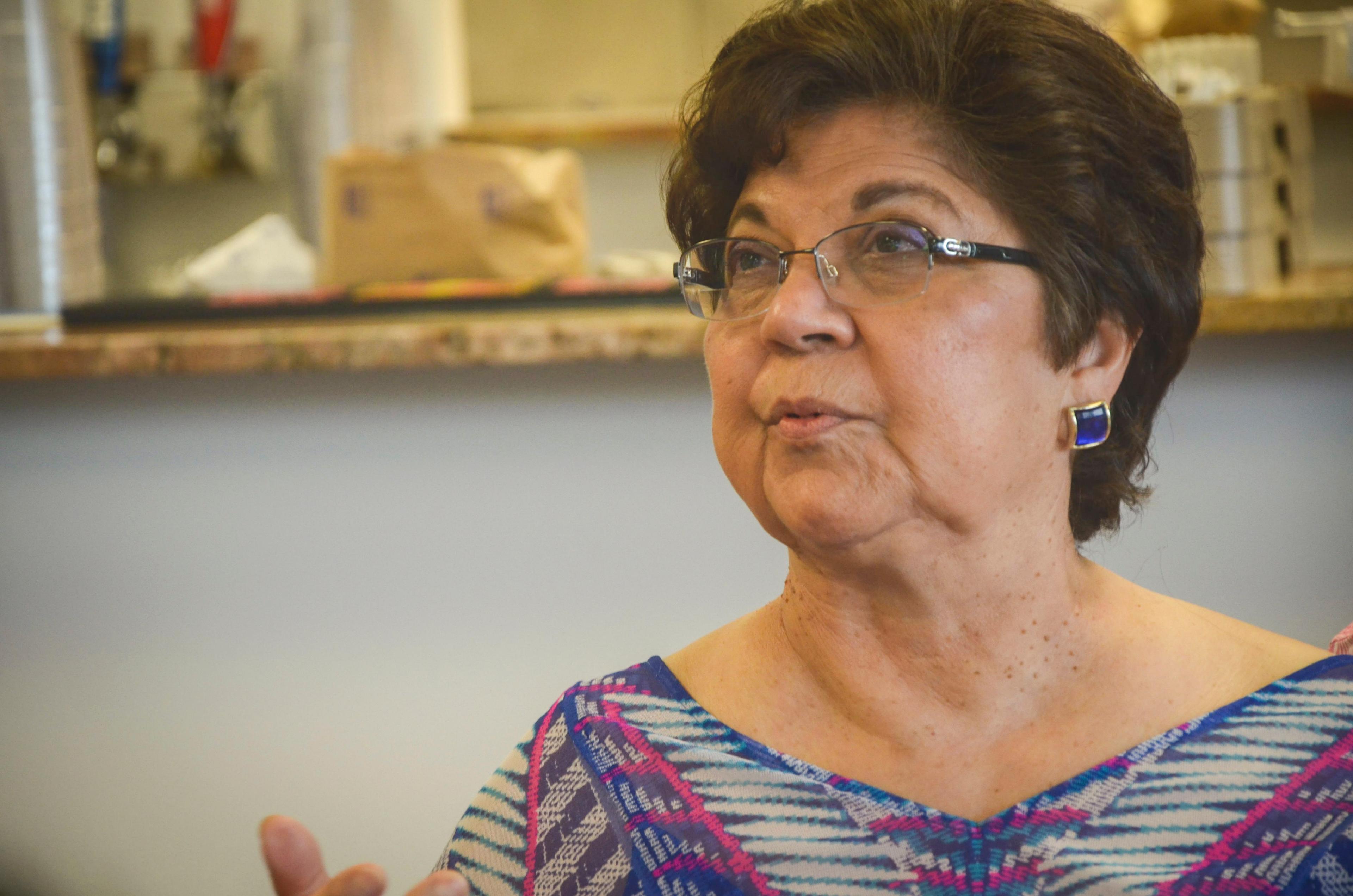
Polly Baca got her start in Democratic politics as a volunteer for John F., Kennedy and hasn't let up in 50 years. She met Hillary Clinton early in both of their careers and supported her 2008 and 2016 presidential campaigns.
Baca lives in Denver but it's her childhood in Greeley that infuses her reaction to Republican Donald Trump's victory Tuesday. "I am frightened," she said. "I'm a Mexican-American and I remember the days when I lived as a child in Greeley, Colorado under segregation. We were not allowed to sit in certain areas in theaters. I mean, in churches we had to sit on the side aisles and we couldn't sit in the middle ... I worry that that kind of hatred has been unleashed by the man who has just been elected by the electoral college."
Baca spoke with Colorado Matters host Ryan Warner.
Related:
Ryan Warner: Now to a longtime Hillary Clinton supporter. Polly Baca of Denver attended her first Democratic National Convention 44 years ago, and she's worked on almost every Democratic presidential campaign since. She was the first Hispanic woman elected to the Colorado state senate and she was a Hillary Clinton superdelegate at this year's convention. Polly Baca, welcome back to the program. Polly Baca: Thank you. You know, I wasn't a superdelegate. I was elected at the state convention as a delegate. RW: Pardon me. PB: That's okay. The only superdelegates are on the D[emocratic] N[ational] C[onvention] members and elected members of Congress, or governors ... RW: Take us inside your head today. What thought has stuck out most? PB: Well I'll be real honest with you. I am frightened. I am really concerned and worried about our country and about our future. I'm particularly concerned and worried about the challenges that this particular election presents for both women and non-white Americans. It's been very painful. We, as, I'm a Mexican-American, and I remember the days when I lived as a child in Greeley, Colorado under segregation. We were not allowed to sit in certain areas in theaters. I mean, in churches we had to sit on the side aisles and couldn't sit in the middle. It was segregated, and it's painful. I remember having people bully me as, throwing snowballs at me, saying I was a dirty Mexican, and being called names. That's painful. I worry that that kind of hatred has been unleashed by the man who has just been elected by the electoral college. RW: What makes you say that? Have you experienced that in this campaign? PB: Yes. Well, my goodness, the language that Trump has used by calling Mexicans, and people like me, racists and ... I'm sorry, not racists but rapists, and what he said about the judge. He was a Mexican-American who was born in this country and Trump says that he can't be fair in a trial that he was undergoing. His language, and what he has said about us, and what he has called us, and that's frightening because what he has done in that, he has allowed people to think that it's okay to be bullied again, and to be racist again, and to be mean to people of color. And that's wrong. And be mean to women, by what he has said, his language. It's scary. It's frightening. RW: Clinton pushed hard for the Latino vote. Nationally, exit polls indicated that she got about 65 percent of the Latino vote, but that's less than Barack Obama got four years ago. That's despite Trump's talk of deporting immigrants, building a wall. Why didn't she break through, given the fears that you've just ... PB: I think she did break through. I think she did break through, and I think she has an enormous, by that I mean enormous number of young Latinos and young people. I think her, I don't understand why anyone, any woman, or any person of color, would have voted for Trump. I just don't understand that. I cannot fathom what would cause them to vote for a man like him, because of what he has said, and how he has acted ... RW: I wonder if that inability, Polly Baca, if that inability to fathom that someone of color could vote for him, when it appears that they did, I wonder if that speaks to a fundamental divide in this country, a lack of understanding between two groups. PB: I think what it speaks to is the fact that some of us have experienced hardships, and we have experienced discrimination, and we have experienced what it feels like when people call us names. I think that's what it speaks to. It speaks to the fact that there are those that have not, those that haven't walked in our shoes. And they may be of our own ethnic or racial groups, that small minority that did vote for Trump. They apparently have not experienced what we have, and they aren't frightened by that kind of language. They may have other reasons that I can't understand. And you know something? This is the first time in my life that I've ever been frightened by a presidential candidate and I've been involved in every single presidential race since 1960. I could have lived with a John McCain or a Romney or any of the Bushes. They never frightened me. None of them ever frightened me. This man does. RW: Polly Baca, thanks for being with us. She's been a Democratic activist since the early 1960s, served 12 years in the Colorado legislature, and was the first Hispanic woman elected to the Colorado state senate. |








